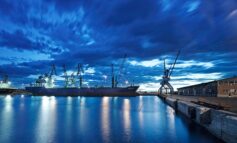Maritime transportation is a highly complex global activity which, given the volume and the nature of processes and transactions involved, is immensely exposed to corruption risks. The growth of maritime trade and the development of maritime transport systems are multiplying these problems, with international organisations developing initiatives to address them.
One of the challenges for the shipping industry is the corruption-related incidents that occur during the approach and mooring of ships in ports. This is also true across the essential transactions for completing transportation, such as the clearance and inspection of ships. The extensive work by the Maritime Anti-Corruption Network (MACN) recorded in an anonymous incident reporting system over 45.000 corruption incidents in 1.195 ports worldwide since 2011 (MACN 2022).
The growth of maritime trade and the development of maritime transport systems are multiplying these problems, with international organisations developing initiatives to address them. A recent example is a recent amendment to the IMO FAL Convention (IMO 2019), introducing a new obligation for national governments by rendering compulsory the exchange of electronic information between ships and ports. Since 2019 the use of a “Single Window” system targets improvements in the efficiency of customs procedures in ports, especially the clearance of vessels, cargo, passengers and crew (IAPH 2021). The latter advance further with the latest initiatives by IMO in developing “Guidance to address bribery and corruption in the maritime sector” (IMO 2020).
The theme of the recent port study by PortEconomics members Paraskevi Kladaki, Thanos Pallis and Gordon Wilmsmeier ….
The study was presented at the 29th Annual Conference of the International Association of Maritime Economists (IAME) held in Busan, Korea – download the presentation and enjoy the reading
The focus is on transactions occurring in ports at the ship-port interface. As several authorities and entities are involved in port processes and transactions, the research priority is on identifying the commitments of those stakeholders that are most important for efficient port clearance of seagoing vessels, namely the Port Authority; Customs Services; Immigration Authorities; and the Port Health Authority.
The analysis expands at the stakeholders’ level, examining the linkages of the frequency of the involvement of specific stakeholders in the reported corruption incidents with the integrity commitments of each group of stakeholders.
The study benefits from an analysis of a unique database of corruption incidents that have been reported by shipping lines and other actors, and consists of 106 ports across six global regions (Africa, Asia, Europe, Latin America & the Caribbean, North America, Oceania).
Using statistical analysis methods, it examines the linkages of reported cases of corruption-related incidents in the 106 different ports worldwide with (a) the state of integrity commitments by the Port Management Entities (PMEs) of these ports and, whenever applicable, by any other involved stakeholders, (b) the type and extent of maritime markets served (i.e., container, bulk etc.); and (c) indicators reflecting the overall integrity of the country in which the port is located.











